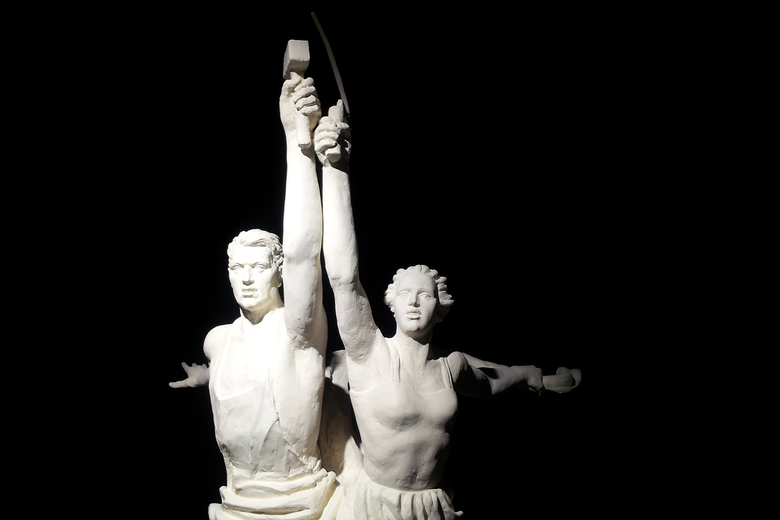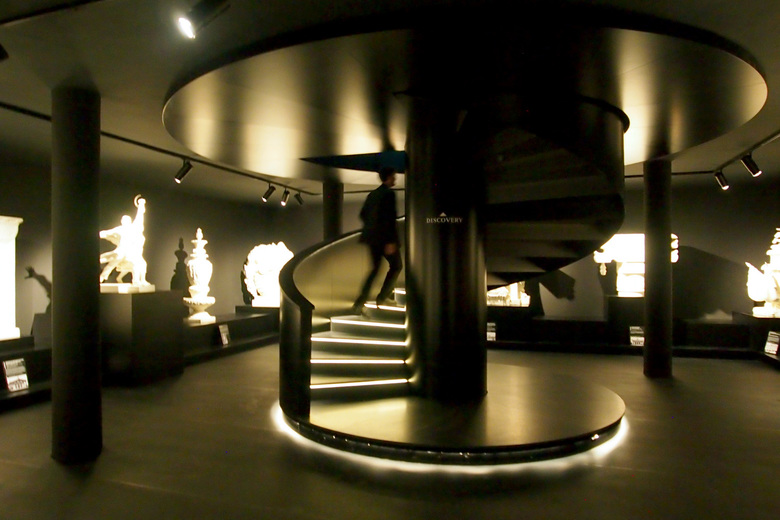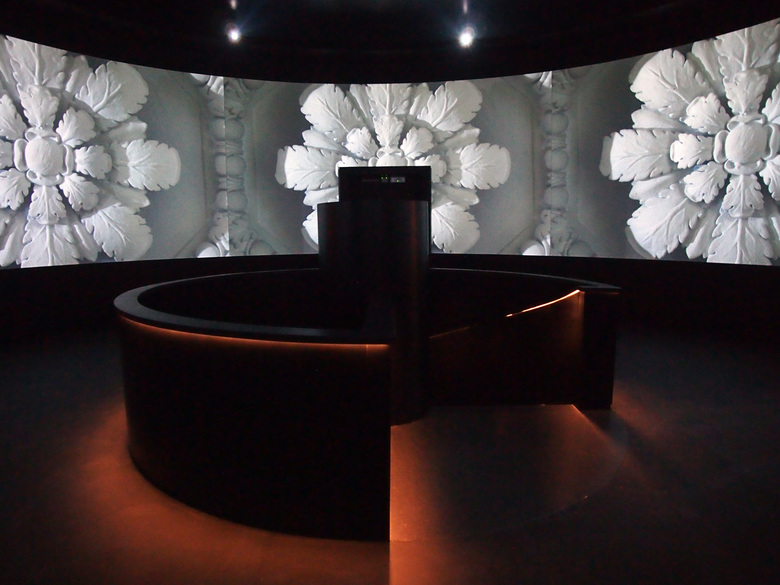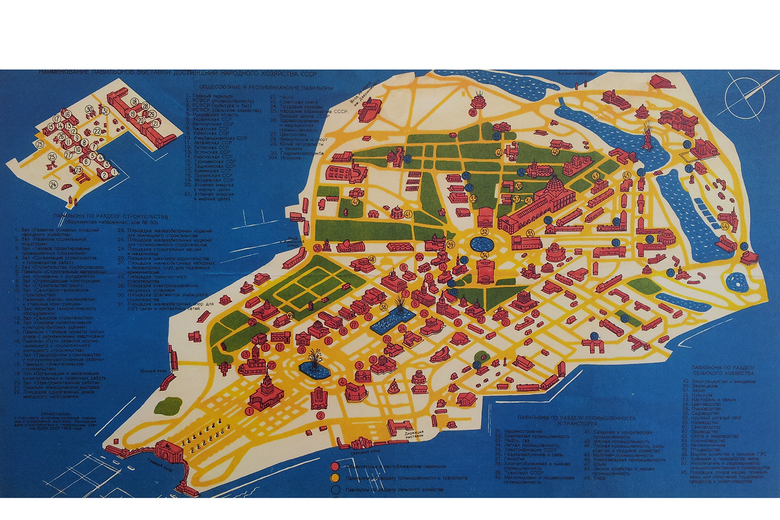With National Pride
At this year’s Architecture Biennale in Venice contributions at the Arsenale and many of the Giardini exhibitions deal with major topics like climate change, urbanization and dwindling resources, while other contributions, including Russia, remain very national.
The staging is good – and expensive. On the ground floor of the Russian Pavilion, the first thing you see is a film shot slightly too quickly, which is accompanied by admonishing sounds, on the making of the VDNH, the largest Soviet and worldwide unique exhibition on national achievements. The "Exhibition of Economic Achievements," which is the written out and translated meaning of VDNH, was conceived as an agricultural fair in 1939 and has been used as such until the dissolution of the Soviet Union. In the following years, it served as an exhibition site, and today, the almost 100 pavilions are used for exhibitions, while the site serves as a park.
In the context of the Biennale appearance, questions about the future of such a large area are raised. The Muscovite HSE Graduate School of Urbanism conducts the V.D.N.H. Laboratory of the Future workshop to develop concepts for the future utilization of the park together with the Institute for Advanced Architecture of Catalonia. Their proposals, which include flying landscapes and underground cities, are exhibited on the upper level of the pavilion. For Ekaterina Pronicheva, director general of the exhibition, the memory of the "architectural gem of Moscow" is an important issue. The multi-cultural VDNH center has been the object of planning and construction work since 2013. Therefore, the presentation in Venice not only features the splendor of the past, but one can also catch a premonition of the future.



